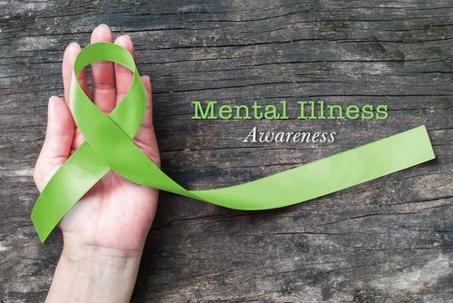This month is Mental Health Awareness Month and Decision Point Center would like to take a moment to shine a light on this important issue and its link to substance abuse and addiction. In fact, according to the National Alliance on Mental Illness (NAMI), it is not unusual for individuals who suffer from mental health conditions to self-medicate through the use of alcohol and recreational drugs, which frequently develops into a much larger problem. Together, we can destigmatize mental health disorders and encourage others to seek the help they need, so they can reclaim their lives and move forward into happier, healthier futures.
The Connection Between Substance Abuse and Mental Health
NAMI estimates that half of all individuals who struggle with a mental illness also abuse drugs and alcohol to cope with the symptoms of their condition. Due to the stigma that is frequently associated with mental health disorders, many do not seek treatment out of shame and fear. The more we work together as a society to destigmatize mental health disorders, the more at ease our loved ones will feel to get the help they need.
If you know someone who has problems with substance abuse, encourage them to get help. Substance abuse not only impacts a person’s mental health and interferes with daily life, but it is also physically dangerous and can result in serious long-term damage, including:
- A high risk of developing a heart condition
- A compromised immune system
- Serious damage to the liver or liver failure
- Infections in the heart valves and blood vessels
- Death
Identifying the Signs of Addiction
Someone who is suffering from a mental illness might start using drugs or alcohol to dull the internal pain and distress of their condition, but it might not seem like an issue at first. However, as tolerance builds, the cravings will become more intense and withdrawals will become more severe.
If you recognize any of the following signs in a loved one, help them seek treatment:
- Frequently misses work or school
- Appears to be more pale than usual and malnourished
- Obvious changes in eating habits
- Loss of interest in people or activities that were once a major part of life
- Excessively defensive
- Always seems to need money or is in a constant financial crisis
- Often seems confused
- Shifts the blame to others
- Continues to use drugs or alcohol, despite the consequences
Seeking help takes courage and bravery. You could help others in your life who might be struggling by giving them the support and encouragement they need to take that first step.
Contact Decision Point Center in Arizona Today!
If you or someone you love is suffering from addiction, you should not have to continue experiencing the emotional and physical pain from this disease. At Decision Point Center in Arizona, we care about each patient who seeks our help and offer a variety of exceptional services that will get you or your loved one started on living a better, fuller life.
Contact our facility today at (844) 292-5010 to learn more about our services.

